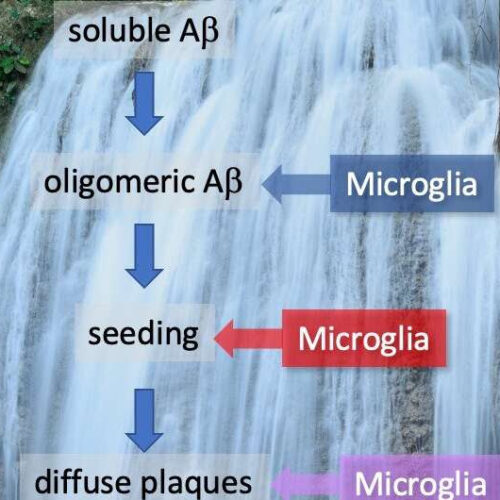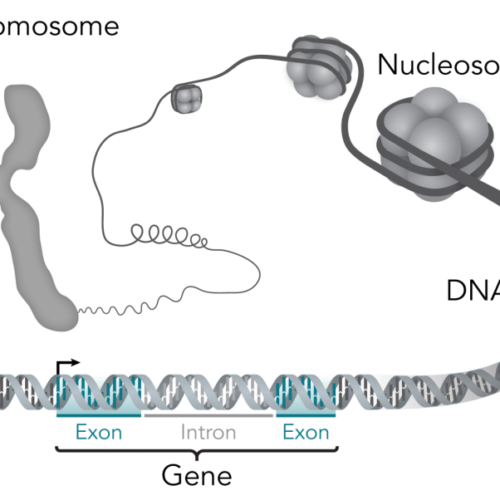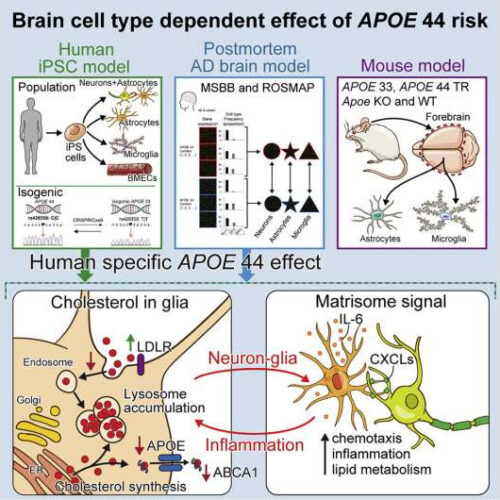by Public Library of Science One way to depict the amyloid cascade. Individual steps in the cascade may evoke distinct microglial responses. Aβ, amyloid-β; AD, Alzheimer disease; APP, amyloid precursor protein. Credit: Haass C, Selkoe D, 2022, PLOS Biology, CC-BY 4.0 (https://creativecommons.org/licenses/by/4.0/) An estimated 50 million people around the world have Alzheimer’s disease (AD), and...
Tag: <span>Alzheimer’s disease</span>
Whole blood exchange could offer disease-modifying therapy for Alzheimer’s disease, study finds
UNIVERSITY OF TEXAS HEALTH SCIENCE CENTER AT HOUSTON A novel, disease-modifying therapy for Alzheimer’s disease may involve the whole exchange of blood, which effectively decreased the formation of amyloid plaque in the brains of mice, according to a new study from UTHealth Houston. A research team led by senior author Claudio Soto, PhD, professor in the Department...
Could a computer diagnose Alzheimer’s disease and dementia?
by Gina Mantica, Boston University Credit: Pixabay/CC0 Public Domain It takes a lot of time—and money—to diagnose Alzheimer’s disease. After running lengthy in-person neuropsychological exams, clinicians have to transcribe, review, and analyze every response in detail. But researchers at Boston University have developed a new tool that could automate the process and eventually allow it...
Ultrasound imaging can help solve the Alzheimer’s disease “chicken and egg” problem
BECKMAN INSTITUTE FOR ADVANCED SCIENCE AND TECHNOLOGY IMAGE: (FROM LEFT) PENGFEI SONG, DR. DAN LLANO, MATTHEW LOWERISON, AND NATHIYA CHANDRA SEKARAN ARE PART OF THE BECKMAN INSTITUTE FOR ADVANCED SCIENCE AND TECHNOLOGY RESEARCH TEAM TO RECEIVE FEDERAL FUNDING TO DEVELOP ULTRASOUND IMAGING METHODS FOR STUDYING THE NEUROVASCULAR CHANGES UNDERLYING ALZHEIMER’S DISEASE. CREDIT: BECKMAN INSTITUTE FOR...
Uncovering one of the driving forces of Alzheimer’s disease
by Flinders University Credit: Pixabay/CC0 Public Domain Alzheimer’s disease, the most common form of dementia, currently has no cure or effective therapy, in part due to gaps in our understanding of how the progressive neurodegenerative disorder arises in the brain. Now, a Flinders University study has shown how a protein called tau, a critical factor...
“Good evidence” that ADHD drugs might also treat Alzheimer’s disease
BMJ There is “good evidence” that drugs to treat attention deficit hyperactivity disorder (ADHD)might also successfully treat key aspects of Alzheimer’s disease, finds a pooled data analysis of the available research, published online in the Journal of Neurology Neurosurgery & Psychiatry. Clinical trials of noradrenergic drugs, which include antidepressants and medicines to treat high blood pressure...
Novel gene for Alzheimer’s disease in women identified
by Boston University School of Medicine This stylistic diagram shows a gene in relation to the double helix structure of DNA and to a chromosome (right). The chromosome is X-shaped because it is dividing. Introns are regions often found in eukaryote genes that are removed in the splicing process (after the DNA is transcribed into...
Researchers find two FDA-approved drugs that curb symptoms of Alzheimer’s disease
UNIVERSITY OF COLORADO ANSCHUTZ MEDICAL CAMPUS Two commonly used psychiatric drugs show evidence of improving symptoms of Alzheimer’s disease including boosting cognition, according to a study from researchers at the University of Colorado Anschutz Medical Campus. “The people who received these drugs developed better cognition and actually improved in their clinical diagnosis,” said the study’s senior...
Study: Flu vaccination linked to 40% reduced risk of Alzheimer’s disease
by University of Texas Health Science Center at Houston Credit: Unsplash/CC0 Public Domain People who received at least one influenza vaccine were 40% less likely than their non-vaccinated peers to develop Alzheimer’s disease over the course of four years, according to a new study from UTHealth Houston. Research led by first author Avram S. Bukhbinder,...
Researchers untangle the APOE4 gene, the most significant genetic risk factor for Alzheimer’s disease
by Boston University School of Medicine Graphical abstract. Cell (2022). DOI: 10.1016/j.cell.2022.05.017 Alzheimer’s disease (AD) is a progressive neurodegenerative disorder and the most common cause of dementia, affecting more than 5.8 million individuals in the U.S. Scientists have discovered some genetic variants that increase the risk for developing Alzheimer’s; the most well-known of these for people over...







